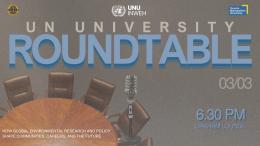The current challenges to food production range from an estimated growth in population by 2050 to 931 million tons of global food waste generated in one year alone to a growing demand for agricultural land and the effects of its overuse. FAO states that 702 and 828 million people faced food insecurity in 2021. In an increasingly volatile period in human history, unpredictable global health emergencies, war and disasters have affected human health and caused shocks and stressors to local food systems, showcasing glaring inequalities in access and availability to food. A holistic approach to global food security, that includes an assessment of social, environmental, geopolitical and demographic factors, is required to ensure equal access to food. To meet the need for more resilient food systems, this research aims to look ahead at future food production in the context of circular economy principles, particularly using tools to ensure water management and biodiversity protection.
Statistics indicate that countries rich in biodiversity and ranking low on the food security index, face a larger threat to the depletion of their biodiversity. Many countries in Latin America are facing a water crisis with their population not having access to clean water and proper sanitation facilities. Additionally their agriculture tends to be heavily dependent on irrigation. The rise in mining has resulted in water pollution as well as a competition of water resources exacerbating conflicts and instability in many parts of the region. Many security and conflict issues that exist in these regions are socio-environmental and have serious implications on food production as well as health and ecosystems.
This research will offer a triangle analysis of water-food-biodiversity and do a comparative study of developing economies, using policy analysis, governance and a participatory approach as tools of study. The aim of this research is to ensure resource management, improve resilience in the agri-food sector and to increase an understanding of the interdisciplinary fields of policy and governance.
This project is funded by DAAD under the Graduate School Scholarship Programme (GSSP).





